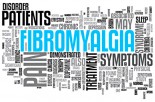Canceled Clients (4762)
Children categories

Train Your Body (438)
The show for fitness buffs or beginners. Expert guest from the American College of Sports Medicine (ACSM) discuss all areas of fitness, nutrition, athletics and sports medicine.
View items...
Staying Well (382)
RadioMD’s “talking” Health A-Z hosted by senior health correspondent, Melanie Cole, MS. Melanie interviews experts in the world of health, wellness, fitness and medicine.
View items...
Healthy Talk w/ Dr. Michael Smith (698)
Integrative physician, Michael A. Smith, MD is committed to providing listeners with the most current health information available.
View items...
Naturally Savvy (899)
Registered Holistic Nutritionist, Andrea Donsky and health expert Lisa Davis discuss their passion for living a natural, healthy lifestyle.
View items...
Eat Right Radio (48)
EatRight Radio, with experts from the Academy of Nutrition and Dietetics, discusses food and nutrition topics, healthy weight, allergies and health conditions, healthy aging, food safety and so much more. Give us 10-minutes and we'll give you the important information and expert advice from registered dietitian nutritionists to help you eat right, feel better, and live a healthier life. Hosted by Melanie Cole, MS.
View items...
Sharecare Radio (235)
Sharecare Radio, hosted by Sharecare’s own Dr. Darria Long Gillespie, SVP of Clinical Strategy at Sharecare, will appear live every Tuesday from 12 to 1 p.m. EST on RadioMD. Dr. Darria will break down the top health news of the week, pull in experts from around the country on a wide array of health topics and answer listeners’ live questions on all things health.
View items...
Wellness for Life (455)
On Wellness For Life Radio you will learn practical, easy-to implement tips to improve your life and start feeling better — the natural way.
View items...
The Wizard of Eyes (163)
Dr. Robert Abel Jr. talks about many of the important and unrecognized parts of our visual system which we so often take for granted. The show covers the usual common ocular disorders with an East/West approach to both prevention and therapy. The eye-brain connection is presented with information about memory retention, Alzheimer's, the myopia epidemic, and many more subjects. Dr. Abel discusses how the eye and vision are connected with remote parts of the body including your gut flora, musculoskeletal system, blood pressure, drugs and lifestyle. practical and simple health tips.
View items...
Code Delicious with Dr. Mike (135)
Code Delicious with Dr. Mike breaks all the rules. Unabashedly confronting the questions, concerns and conundrums that continually confuse both public and experts alike; Dr. Mike takes us on a tasty trip of inquiry.
View items...
CLEAN Food Network (98)
This show is a call to action for all the clean eating revolutionaries that care about their health and how and what they eat. Non-GMO, natural, organic . . . food the way nature intended. The clean food movement is huge and is growing exponentially. This companion program talks to experts in food preparation, healthcare, celebrities, and even those companies that care enough to provide the best, wholesome, organic foods and groceries.
View items...
Talk Healthy Today (213)
Looking to create your best self? Whether it’s good-for-you lifestyle hacks, smarter ways to supplement, or tasty tips to fuel optimal health, Talk Healthy Today brings you the latest research, tools, and common sense tips you need to get and stay healthy... starting today!
View items...
Be a Doer (17)
Be A Doer features master coach and TV personality John Abdo as he shares health and fitness tips aimed at getting you in shape – and keeping you there!
View items...The Power of Probiotics (3)
Probiotics is a major global industry. But like any industry, it had to have a beginning. Natasha Trenev is the daughter of an Eastern European family where the manufacturing of yogurt was a generational business. When Natasha emigrated to the US in the 1960’s, she brought with her 750 years of family experience with probiotics – and introduced the science (and the term itself) to her new country. Today, Natasha’s California-based Natren, Inc. is the recognized pioneer in probiotics and company founder Natasha Trenev has earned recognition as the Mother of Probiotics. Her more than 50 years of work in natural health is at the core of the unparalleled success of her company – and you will benefit from her depth of expertise in each and every episode of THE POWER OF PROBIOTICS.
Probiotics are live microrganisms that are commonly referred to as ‘friendly,’ ‘good’ or ‘healthy’ bacteria that function to help maintain the natural balance of organisms in the intestine. Throughout Natasha’s extensive work in the field of probiotics, she has always been amazed by how nature provides the very ‘good’ bacteria that can help overpower ‘bad’ bacteria to keep our digestive tracts functioning at peak performance. Properly cultivating friendly bacteria and ensuring their potency is at the core of the Natren Process. Natren is cited – by retailers, by the medical community and by consumers – as the best probiotic supplement available. Only Natren carefully chooses its probiotic cultures, formulates and manufactures its industry standard probiotics in its own plant and utilizes a specially-formulated oil matrix to protect probiotics bacteria to survive until they reach their destination in the upper small intestine. This is why only Natren is the most trusted probiotic supplement on the market. Truly, where other probiotic supplements promise – Natren Delivers.
To learn more about how probiotics can benefit your health, we are proud to introduce you to THE POWER OF PROBIOTICS with The Mother of Probiotics, Natasha Trenev.

Your Brain Health (24)
Noted Los Angeles-based neuroscientist and media personality Dr. Kristen Willeumier launches Your Brain Health with Dr. Kristen Willeumier, a podcast series that explores the latest news and information in the burgeoning science of brain health.
View items...Additional Info
- Segment Number 1
- Audio File train_your_body/1443tb2a.mp3
- Featured Speaker Kim DeLaFuente
- Organization ACSM
-
Guest Bio
 In her current role, Kim DeLaFuente serves as the exercise content expert for the Healthier Communities Department at Spectrum Health in Grand Rapids, Michigan. She has co-authored two childhood obesity prevention and intervention programs including nationally recognized Fit Kids 360. She serves on the ACSMs Consumer Information Committee and is a certified Clinical Program Director. Kim has worked in many roles during her career including cardiac rehabilitation, corporate wellness, teaching college level exercise science classes, and program development for community based programs. Kim’s professional interests include health coaching, exercise across the lifespan and disease prevention.
In her current role, Kim DeLaFuente serves as the exercise content expert for the Healthier Communities Department at Spectrum Health in Grand Rapids, Michigan. She has co-authored two childhood obesity prevention and intervention programs including nationally recognized Fit Kids 360. She serves on the ACSMs Consumer Information Committee and is a certified Clinical Program Director. Kim has worked in many roles during her career including cardiac rehabilitation, corporate wellness, teaching college level exercise science classes, and program development for community based programs. Kim’s professional interests include health coaching, exercise across the lifespan and disease prevention.
-
Transcription
- Length (mins) 10
- Waiver Received No
- Host Melanie Cole, MS
Additional Info
- Segment Number 2
- Audio File eat_right/1443nd5b.mp3
- Featured Speaker Vandana Sheth, RD
- Organization Academy of Nutrition and Dietetics
-
Guest Bio
 Vandana Sheth is the owner of a nutrition consulting practice focusing on diabetes, food allergies, obesity/weight management, gastrointestinal and cardiovascular nutrition and disease prevention, working with individuals, groups, community organizations and schools. She has written articles on nutrition for magazines and other professional publications and has served with numerous community organizations as a nutrition expert specializing in food allergies and vegetarian nutrition.
Vandana Sheth is the owner of a nutrition consulting practice focusing on diabetes, food allergies, obesity/weight management, gastrointestinal and cardiovascular nutrition and disease prevention, working with individuals, groups, community organizations and schools. She has written articles on nutrition for magazines and other professional publications and has served with numerous community organizations as a nutrition expert specializing in food allergies and vegetarian nutrition.
Learn more about Vandana Sheth here. -
Transcription
Melanie Cole (Host): There are many reasons that people decide to become a vegetarian—personal preference, ethical motivations, environmental concerns, religion. A lot of reasons people decide to become a vegetarian, but it may not be as difficult as you might think. My guest is registered dietitian/nutritionist, Vandana Sheth. Vandana, welcome to the show. Tell us about what are the different types of vegetarian, because people hear about all these different types. Explain the different types to us.
Vandana Sheth (Guest): Sure. There are so many different types of vegetarian diets. Basically, vegetarians who consume plant-based food as well as dairy products like milk are considered lacto vegetarians. You have those that include egg products, and they are considered lacto-ovo vegetarians. Individuals or people who consume strictly plant-based food or animal products are considered vegans. Of course, there are different people who might have an occasional vegetarian meal or they may pick, and choose when they have animal-based products, and sometimes the term “flexitarian” has been used for people like that.
Melanie: Well, I’ve even heard of people that consider themselves vegetarians to a degree, but then they, as you say, they’ll eat dairy and eggs, but even occasionally they’ll eat fish. It really is kind of a personal preference. Tell us how you become a vegetarian. What would you say is the first step?
Vandana: The first step is recognizing that really a plant-based diet or even having vegetarian options is not that foreign. We often have plant-based foods in our diet, naturally. For example, if you have a peanut butter and jelly sandwich, right there it’s a vegetarian option. If you think about your breakfast, if you have cereal or oatmeal with some nuts and seeds and either milk or a dairy alternative, it’s another vegetarian option. It’s fairly simple to do this, but recognizing how to go about it so that it’s healthy is key.
Melanie: How do we go about it so that it’s healthy and making sure to get our proteins in?
Vandana: Sure. The first thing is if you think about the USDA visual icon, the My Plate visual that’s out in the market now, think of the plate where you have half your plate filled with colorful fruits and vegetables. One-fourth of it is filled with your whole grains or carbohydrates, such as brown rice, quinoa, bread, tortillas, and one-fourth is filled with your lean protein. Now, if you are going plant-based, simply switch out that animal-based protein for plant-based options, such as beans, lentil, tofu, nuts, seeds, et cetera, and right there you’ve made that a plant-based meal.
Melanie: It’s not really as difficult and it’s about being creative really, isn’t it, Vandana? Because you have to try and see where those replacements are. What do you think of things that replace a meat-type product looking just like it, like MorningStar Farms or Boca crumbled beef, using those in tacos? Do you think that’s the way to go or you should really replace it with beans and things where you’re not trying to actually look like you are eating meat?
Vandana: Well, it depends on where you’re starting from. From my clients who -- this is a whole new way of living or trying a plant-based food. That might be an easy transition. For example, if they went to a barbecue or a potluck dinner where they are serving hotdogs and hamburgers, then having a veggie burger or some kind of plant-based dog would be an easy option. But really, ideally you want to enjoy plant-based proteins the way they are, so get it naturally from beans and lentils because you’re getting not only the protein, but you’re getting the fiber, adding spices and herbs, making it flavorful.
Melanie: Give us your favorite recipe, your favorite vegetarian recipe, something that our listeners can cook right now tonight.
Vandana: Okay, a real quick recipe would be brown rice, stir-fried vegetables in olive oil, garlic, and ginger. Add in some tofu or beans, and right there you have a quick, simple, healthy meal.
Melanie: Wow! That is quick and simple. I myself love beans and rice and black beans with cilantro and lime. You just absolutely can’t beat that. There are so many vegetarian foods, so many ways to eat. Give us another one of your favorites. Give us a breakfast that we can eat that’s healthy and vegetarian.
Vandana: Okay, sure. One of my favorite hot breakfasts in the cold months is having hot quinoa. We often think of oatmeal as a hot breakfast option, but I cook up a batch of quinoa in the weekend and just scoop some out, warm it up, add some either plant-based beverage or add some dairy, cinnamon, chopped nuts, and dried fruit, and right there it’s a delicious, warm breakfast.
Melanie: What are your favorite proteins? Do you like nuts? Do you like legumes? How can we get the protein, and are there any nutrients that you feel vegetarians tend to miss out on?
Vandana: As Americans, we often think if you cook plant-based, you might not meet your protein needs. Really, it’s not that difficult. Protein needs can easily be met on a vegetarian diet. Some excellent sources are legumes, lentils, beans, peas, tofu, edamame, having nuts and seeds, and all the misconception was that you needed to combine foods to get all your nutritional value, and that’s not so. You could have herbs at one meal and you could have a protein-based meal at another time, and your body is capable of blending it and getting it right.
Melanie: What about iron?
Vandana: I’m sorry. Exactly. Iron is another key nutrient that you might wonder if you get enough of if you’re a vegetarian. Some key sources are green leafy vegetables, tofu, tempeh, blackstrap molasses. Something else to think about on a vegetarian diet is the iron may not be absorbed as effectively as if it comes from meat products. So combine that with a vitamin C rich environment. For example, if you are having a spinach salad, toss in some tomatoes, red bell peppers which are high in vitamin C. Your body will absorb almost six times more iron from that spinach.
Melanie: What about being a vegan? Because it seems that if you tell somebody you’re a vegan, then they may look at you differently or say, “Oh, this person isn’t willing to try all those things.” Tell us why someone would be a vegan versus, say, a lacto-ovo vegetarian.
Vandana: Sure. Again, some of the same reasons apply. If you were doing it for health reasons, for environmental reasons, if you’re doing it for religion or for ethical motivation, regardless of your reason, if you’re a vegan, something to think about is that you’re strictly focusing on plant-based food. You would be able to meet all your nutritional needs on this vegan diet. However, you do need some planning in place, and one key nutrient to think about is vitamin B12, because that mainly comes from animal products. If you’re on a vegan diet, you want to ensure you’re either getting it through fortified food or from a supplement that has vitamin B12.
Melanie: That’s interesting. You want to make sure that you’re getting your B12 if you’re a vegan because the foods may not contain them. What do you say to vegetarians that say, “Should I be supplementing with a multivitamin or a little extra folic acid or iron supplements?” Do you generally tell them, or are these found in nature pretty easily?
Vandana: Well, you can find most of the nutrients you need in nature. If you are following a vegan diet, then I will ensure that you are making sure your food labels, that you’re reading them carefully. For example, if you’re having a plant-based dairy alternative, such as soya milk or almond milk, just make sure it’s fortified with vitamin D, calcium, vitamin B12, and right there you’re getting those nutrients that you might otherwise miss.
Melanie: What about for the whole family? Is it okay for kids to eat vegetarian?
Vandana: Absolutely. In fact, the Academy of Nutrition and Dietetics says that a vegetarian diet, including a vegan diet, can be healthy for people at all stages of life, from infancy all the way through senior citizens. The key is, again, making sure you’re getting a wide variety, it’s well planned, and you’re getting the right portions of different nutrients throughout the day.
Melanie: In the last 30 seconds, if you would for us, Vandana, please give us your best advice on becoming a vegetarian.
Vandana: Be creative. Recognize that a plant-based diet can be healthy. It can actually have lots of positive health benefits. But making sure that you are balancing it out eating a variety of food, colorful fruits and vegetables, beans, lentils, nuts, and seeds, and again, be creative.
Melanie: Great information. Thank you so much for listening to Eat Right Radio from the Academy of Nutrition and Dietetics. This is Melanie Cole. Thanks for listening. Stay well. - Length (mins) 10
- Host Melanie Cole, MS
Additional Info
- Segment Number 1
- Audio File eat_right/1443nd5a.mp3
- Featured Speaker Libby Mills, MS, RDN, LDN
- Organization Academy of Nutrition and Dietetics
-
Guest Bio
 Libby Mills, MS, RDN, LDN is an entrepreneurial Registered Dietitian Nutritionist, culinary professional and Spokesperson for the Academy of Nutrition and Dietetics. Renowned for her ability to connect with everyday people, Libby combines her energy, wit and creativity to bring food, nutrition and health alive through her professional speaking, writing and cooking/nutrition coaching. A dynamic educator, Libby incorporates her passion, knowledge and experiences into any opportunity to inspire and empower others to make healthful choices. Locally, Libby is known as the host of Libby's Luncheonette, a weekly Philadelphia radio show featuring nutritious eats and tips that focus on our local food system and how sustainable choices can positively affect our personal, community and ecological health and well-being.
Libby Mills, MS, RDN, LDN is an entrepreneurial Registered Dietitian Nutritionist, culinary professional and Spokesperson for the Academy of Nutrition and Dietetics. Renowned for her ability to connect with everyday people, Libby combines her energy, wit and creativity to bring food, nutrition and health alive through her professional speaking, writing and cooking/nutrition coaching. A dynamic educator, Libby incorporates her passion, knowledge and experiences into any opportunity to inspire and empower others to make healthful choices. Locally, Libby is known as the host of Libby's Luncheonette, a weekly Philadelphia radio show featuring nutritious eats and tips that focus on our local food system and how sustainable choices can positively affect our personal, community and ecological health and well-being.
Learn more about Libby Mills -
Transcription
Melanie Cole (Host): There is no greater sadness or travesty than stunting the human potential and threatening the health and development of children. Food insecurity represents one of the most serious social and health issues in the United States. My guest today is Libby Mills. She’s an entrepreneurial registered dietitian/nutritionist, culinary professional, and spokesperson for the Academy of Nutrition and Dietetics. Welcome to the show, Libby. Tell us, what is the truth about the hunger-obesity paradox? And state what that is for the listeners.
Libby Mills (Guest): Melanie, I’m glad you asked, and I think the first place to start is really looking at food insecurity. It’s heartbreaking to think that anyone has to go hungry, especially a child. There are 16 million children in our country that are affected by hunger due to food insecurity. Let’s face it. Everyone should have food to eat, and no one should ever have to go hungry, yet many households just don’t have enough money or resources to guarantee that there’ll be enough food for everyone to eat. These people live in constant uncertainty, wondering if they will have food to eat or not. I don’t know about you, but when I have to work through lunch, all I can think about is when and what I’ll have for dinner that night, right? Anyway…
Melanie: That’s all I do all day anyway, Libby, is think about what I’m going to have for dinner all night. I know that it must be heartbreaking when it is a child. What’s the health and social impact of hungry children? It seems inconceivable to us with a fast food restaurant in every corner that there are children in this country that are literally starving, and yet obesity is such a huge problem with children these days.
Libby: It is. We’re so used to seeing hunger in the face of the children from Haiti or Somalia or Sierra Leone and countries where agricultural drought or perhaps natural disasters or where the drinking water is undrinkable, or perhaps even civil warfare has devastated social structures. But in this country, food and security looks a lot different. And the truth is about hunger and obesity, they’re linked for our children. In fact, hunger and obesity often occur in the same neighborhoods and the same families. These families really are making critical choices between nutrient-dense foods that are more expensive and less expensive foods that don’t have the same nutrients that children need to grow up the way they need to. It’s really a critical trade-off between food quantity and food quality. In fact, to bring this illustration to life, I was reading a published study in the December 13, 2013 BMJ Journal in which a meta-analysis study, they looked at dietary patterns and retail prices between the years 2000 and 2011. It found that on a 2000-calorie diet, healthy foods cost about $1.50 more than unhealthy options. Now, that doesn’t sound like much, but when you think about a family that already is limited in its income and you add that up for a year, that’s $550 per person, an extra $2,000 for a family of four just to eat healthy. You begin to see why this picture comes to pass. And in fact, I was doing some further reading and found some research by Adam Drew Limsky, and he asks the question, “What does $1 buy?” And you’ve got to hear this, because $1 can buy 1,200 calories of cookies or potato chips, but only 250 calories from carrots. We know that carrots have lots of vitamins and nutrients that a cookie or perhaps a potato chip don’t have, not to mention the lack of extra fat that you would be getting from these higher-calorie, low-nutrient foods, a.k.a. junk food, compared to those carrots. So I think that research really brings to light that trade-off between quality and quantity that these people face on an everyday basis, which is so important in explaining why the hunger and obesity go together and why the hunger and obesity paradox exists. For the Academy of Nutrition and Dietetics, we’ve made a really special point to bring this to light for people who want to understand it better with our downloadable infographic, Nourish to Flourish, which you can access on kidseatright.org. And it’s downloadable and it explains the situation so clearly in pictures.
Melanie: You see these dollar menus at all the junk food restaurants. Here a dollar menu, here a dollar menu, there. Then you hear people complain that they see people with food stamps going in and buying chips and candy and all these things. Is there a way to, without regulating what they have to buy using food stamps, for example, getting rice, getting canned vegetables, frozen vegetables, whatever is the healthiest way to get some of those nutrient-dense foods in as opposed to these things that just have nothing in them?
Libby: Absolutely. Education is key, and the Academy of Nutrition and Dietetics has made educating all people about nutrition and nutritious choices a top priority. That’s one of the biggest first steps that can take place. But understanding that for 25 to 37 cents, a person can buy snack packaged foods like cookies or cakes or chips and get, let’s say, 150 to 190 calories per serving, whereas they couldn’t afford vegetables or fruits for the same amount. For example, nutrient-rich fruits and vegetables cost 39 to 66 cents per serving, and they just generally are more pricey. So, understanding where these people are coming from when you see them buying these snack foods is very critical. But certainly, guiding them towards those nutritious choices where they’re getting fiber and whole grains and beans and lentils, where they’re getting sustenance with that power pack of nutrition, all in one swoop, is definitely a critical step.
Melanie: What about supplementation? Is that on the table as a discussion of ways to get the nutrients, the vitamins, the minerals they need if they are not spending on the healthier choices?
Libby: Well, that’s certainly one option. However, if you’ve ever priced out supplementation at the store…
Melanie: It’s expensive.
Libby: Yeah, it’s an expensive way to go. The truth is it’s really not necessary. By choosing whole grains, by choosing calorie-rich, nutrient-rich beans, lentils, rice, these folks can basically balance their budget while getting the nutrients they need so that they do have some extra money to spend on vegetables. It’s been very interesting comparing prices at the store, because when vegetables are in season, they actually are more affordable. And if you watch the sales at the store, you can stock up or certainly purchase from week-to-week frozen vegetables that can be worked into dishes, like paired with pasta or rice or beans.
Melanie: Libby, how can listeners make a difference?
Libby: Listeners are so empowered right now. One of the most exciting things that listeners can do is they can actually try spending a week on a snap budget. And a snap budget is basically $31.50 a month and…
Melanie: Only have about a minute left, Libby.
Libby: Okay, so this equates to about $1.50 per meal. So they can try this out tracking their spending just to get a feel for what that’s like. Their experiences, they can blog, they can use social media or share with the newspapers or reach out to policymakers in Washington D.C. They can advocate for expanding school meal programs or supporting the SNAP program, the Supplemental Nutrition Assistance Program. They should also definitely check out kidseatright.org, where they will find lots of information and be able to reach out to a registered dietitian/nutritionist for advice, or perhaps bringing a Kids Eat Right program into their community.
Melanie: Thank you so much. The website is kidseatright.org. You’re listening to Eat Right Radio with our good friends from the Academy of Nutrition and Dietetics. This is Melanie Cole. Thanks so much for listening, and stay well. - Length (mins) 10
- Host Melanie Cole, MS
Additional Info
- Segment Number 5
- Audio File healthy_talk/1442ht4e.mp3
- Organization Life Extension
- Guest Website Healthy Talk MD
- Length (mins) 10
- Waiver Received No
- Internal Notes NO GUEST
- Host Mike Smith, MD
Additional Info
- Segment Number 4
- Audio File healthy_talk/1442ht4d.mp3
- Featured Speaker David Osmond
- Guest Website Can Do MS
-
Guest Bio
 David Osmond has show business in his genealogy, as part of the world famous Osmond family; so continuing in the family business was a natural progression.
David Osmond has show business in his genealogy, as part of the world famous Osmond family; so continuing in the family business was a natural progression.
Being the 4th son of Alan and Suzanne Osmond, David grew up in the spotlight, as his father Alan was the oldest, and therefore the leader of the Osmonds (Alan, Wayne, Merrill, Jay, Donny, Marie, and Jimmy).
Every family has challenges to overcome, and the Osmond Family is no exception. When David's father, Alan, was diagnosed with MS, it led to his early retirement from the performing Osmonds.
Shockingly, David was also forced to put his career on hold, due to his own diagnosis and physical battle with MS. David followed his father's own words of wisdom: "I may have MS, but MS does NOT have me," and has been able to become a symbol of hope to the MS community. - Length (mins) 10
- Waiver Received No
- Host Mike Smith, MD
Additional Info
- Segment Number 3
- Audio File healthy_talk/1442ht4c.mp3
- Featured Speaker Jacob Teitelbaum, MD
- Organization Vitality 101
- Book Title The Fatigue and Fibromyalgia Solution
- Guest Website Jacob Teitelbaum
-
Guest Bio
 Jacob Teitelbaum, MD, is Director of the Fatigue & Fibromyalgia Practitioners Network and author of the best-selling book, From Fatigued to Fantastic! He is also the creator of the popular free iPhone & Android application "Cures A-Z."
Jacob Teitelbaum, MD, is Director of the Fatigue & Fibromyalgia Practitioners Network and author of the best-selling book, From Fatigued to Fantastic! He is also the creator of the popular free iPhone & Android application "Cures A-Z."
He is the lead author of four studies on effective treatment for fibromyalgia and chronic fatigue syndrome, and a study on effective treatment of autism using NAET.
Dr. Teitelbaum does frequent media appearances including Good Morning America, CNN, Fox News Channel, the Dr. Oz Show and Oprah & Friends. He lives in Kona, Hawaii. - Length (mins) 10
- Waiver Received Yes
- Host Mike Smith, MD
Additional Info
- Segment Number 2
- Audio File healthy_talk/1442ht4b.mp3
- Featured Speaker Jacob Teitelbaum, MD
- Organization Vitality 101
- Book Title The Fatigue and Fibromyalgia Solution
- Guest Website Jacob Teitelbaum
-
Guest Bio
 Jacob Teitelbaum, MD, is Director of the Fatigue & Fibromyalgia Practitioners Network and author of the best-selling book, From Fatigued to Fantastic! He is also the creator of the popular free iPhone & Android application "Cures A-Z."
Jacob Teitelbaum, MD, is Director of the Fatigue & Fibromyalgia Practitioners Network and author of the best-selling book, From Fatigued to Fantastic! He is also the creator of the popular free iPhone & Android application "Cures A-Z."
He is the lead author of four studies on effective treatment for fibromyalgia and chronic fatigue syndrome, and a study on effective treatment of autism using NAET.
Dr. Teitelbaum does frequent media appearances including Good Morning America, CNN, Fox News Channel, the Dr. Oz Show and Oprah & Friends. He lives in Kona, Hawaii. - Length (mins) 10
- Waiver Received Yes
- Host Mike Smith, MD
Additional Info
- Segment Number 1
- Audio File healthy_talk/1442ht4a.mp3
- Organization Life Extension
- Guest Website Healthy Talk MD
- Length (mins) 10
- Waiver Received No
- Internal Notes NO GUEST
- Host Mike Smith, MD
Additional Info
- Segment Number 4
- Audio File train_your_body/1442tb2d.mp3
- Featured Speaker Grace DeSimone
- Organization ACSM
-
Guest Bio
 Grace DeSimone is the Editor for ACSMs Resource Manual for Group Exercise Instructors (LWW 2011). She has been in the fitness industry for over 30 years and brings a variety of experiences in commercial, corporate and community settings. She serves as the National Director of Group Exercise for Plus One Health Management, and teaches group exercise classes and Anti-Aging workouts at Ethos Fitness Spa for Women in Midland Park, NJ.
Grace DeSimone is the Editor for ACSMs Resource Manual for Group Exercise Instructors (LWW 2011). She has been in the fitness industry for over 30 years and brings a variety of experiences in commercial, corporate and community settings. She serves as the National Director of Group Exercise for Plus One Health Management, and teaches group exercise classes and Anti-Aging workouts at Ethos Fitness Spa for Women in Midland Park, NJ.
-
Transcription
- Length (mins) 10
- Waiver Received No
- Host Melanie Cole, MS
Additional Info
- Segment Number 5
- Audio File naturally_savvy/1442ns3e.mp3
- Featured Speaker Richard Greenberg, author
- Book Title Raising Children that Other People Like to Be Around
- Guest Website Common Sense Dad
- Guest Facebook Account https://www.facebook.com/CommonsenseDad?ref=hl
- Guest Twitter Account @commonsensedad
-
Guest Bio
Richard Greenberg is a father of four and the author of Raising Children that Other People Like to Be Around. A native of Los Angeles, California, Richard graduated from UCLA with a Bachelor’s degree in English in 1976 and immediately went to work as the personal assistant to Art Garfunkel. Choosing to stay in Los Angeles and marry his childhood sweetheart, Richard became active in the television industry while he and his wife, JoAnn, began building their family. Three sons and one gorgeous, intelligent, and flawless daughter later, the Greenbergs were regularly asked how they got “such good kids.” In response, Richard wrote Raising Children that Other People Like to Be Around. His objective was to offer logical, common sense guidelines for people creating their own families and to help young parents, especially mothers, understand a father’s point of view. You can read more of Richard’s parenting tips, tools, and triumphs on his blog, www.commonsensedad.com, by following commonsensedad on Twitter, or by liking his Common Sense Dad fanpage on Facebook.
In addition to his writing, Richard is a congenial, down-to-earth expert and lecturer on the subject of parenting. He has appeared multiple times on national, local, and internet television and radio. Richard offers an online parenting course at www.momassembly.com and is a regular contributor to the Huffington Post. -
Transcription
- Length (mins) 10
- Waiver Received Yes
- Host Andrea Donsky, RHN and Lisa Davis, MPH














